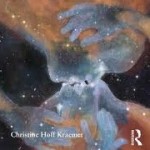
Recently, after fourteen years of interfaith dialogue and sheer hard work, the Scottish Pagan Federation has been officially recognised as a member of the Scottish Interfaith Council. This is a really important development, and a tribute to the hard work and persistence of the Scottish Pagan Federation.
I interviewed John Macintyre, a good friend of mine, a former president of the Scottish Pagan Federation, and the person who is responsible for most of that patient process of dialogue, and asked him to explain why it is so important, and how it was achieved.
Yvonne: What exactly does being a member of the Scottish Interfaith Council entail for the Scottish Pagan Federation? What are the benefits?
John: It means that Paganism is now formally recognised by, and included within, the official, national, interfaith body of this beloved country.
In a sense, by this stage of Scottish PF’s long-standing interfaith programme, it could be argued that much of this particular achievement is symbolic. We’ve long been recognised as the representative body for Pagans by the Scottish Government, and consequently involved in a broad range of consultations and activities relating to hospital and prison chaplaincy, education, youth issue, the national census, equalities and other matters. We’ve had legal, Pagan, religious marriage in Scotland for almost ten years now. Religious discrimination against Pagans has been in rapid decline for almost twenty years now. The main benefit here is that the other faiths in Scotland have now accepted that we belong in SIFC, and even if not all of them are entirely comfortable with us, greater familiarity and the passage of time will take care of that.
Yvonne: This has obviously been a lengthy process. How come it took fourteen years?
John: Although Paganism has been reviving in Europe, in the West generally, for generations now, we are still a very small religion which quite a few people harbour grave misconceptions about. It takes time, quite a long time sometimes, to educate people. It also takes time, dialogue and, crucially, a fair amount of getting to know each other as human beings and working together on common projects, to dispel the grim negative stereotyping that Paganism has attracted for centuries.
Fourteen years is certainly a long time but we’ve actually been very fortunate in Scotland where, as far as I know, more progress has been made in this matter than in any other European country. The re-convening of the Scottish Parliament in 1999, albeit with very limited powers, initiated a radical transformation in our civic culture. Perhaps because we had such a shameful record of religious sectarianism going back generations, politicians of all the main parties were determined to promote religious inclusion and respect for diversity. Although Pagans are only a small part of our multi-faith society, we certainly benefited from the change to more progressive official attitudes.
Yvonne: What kept you going?
John: Faith. Faith in our Gods and Goddesses, and in the whole Pagan complex of world views which certainly merits a place in our modern cultures. Faith in the general principle that if something is right and needs doing, you work at it until it’s done.
Yvonne: What would you say to those Pagans who feel that interfaith is a “waste of time”?
John: I’d say that they should look at what interfaith has achieved for Paganism in the last twenty years and perhaps change their minds.
Interfaith is not a threat, it doesn’t aim to change what Paganism is, still less to merge it into some kind of ‘one size fits all’ universal religion. It allows us to educate other faith groups and the wider society about the reality of modern Paganism, to challenge prejudice and negative stereotyping close to its sources, and to make a positive contribution as one of the many faith communities that make up our society.
I’m well aware that a few Pagans have always seen interfaith as a process in which we somehow sought the approval of the Christian Church. They were, and are, wrong. Such views usually went hand in hand with paranoia and negative stereotyping regarding Christians. They were, and are, wrong about that too. Such people often seemed to prefer moaning to each other about how much prejudice there was against Pagans rather than going out and doing something about it. That’s not only wrong, it’s cowardice.
Interestingly and encouragingly, it isn’t a question you hear very often nowadays. You and I both remember the time, twenty years or so ago, when it was a genuinely controversial topic in the community and we often had to defend our involvement. Things are very different now. I don’t think anyone’s raised it with me since the year 2000 CE.
Yvonne: What advice would you give to others trying to achieve a similar outcome with regard to other interfaith bodies?
John: Your strategy will be determined to a very large extent by the way religion in general, and interfaith in particular, fits in to the civic structures of your country. That’s inevitably going to differ a great deal from place to place. But the key to the whole thing is getting involved in whatever interfaith groups and networks are available, engaging in dialogue with other religious bodies to explain what modern Paganism is, and gradually building up goodwill, reciprocal understanding and respect wherever you can.
Even where another faith’s beliefs and attitudes are utterly different from those of Pagans, you’ll still find at least a few commonalities, the Golden Rule being a good example. Most of the people you’ll meet with will be thoroughly decent sorts, even if it takes a while for them to understand where you’re coming from. You may well encounter a certain amount of ignorance, prejudice and even insult, but you must never let it get to you and never let yourself be dragged down to that level.
Always remember that you represent the modern expression of a complex of ancient, honourable and profound religious traditions that provided the foundations of our modern Western world, and try to be worthy of that.
Yvonne: Many thanks for the detailed and thoughtful responses, congratulations and well done to you and to the Scottish Pagan Federation, and it’s really great to hear such a success story. Hard work, integrity, and faith really do achieve results in the end.
Here’s a video of John announcing the news of Scottish PF’s inclusion in the Scottish Interfaith Council at the 2013 Pagan Federation conference in Edinburgh:
















